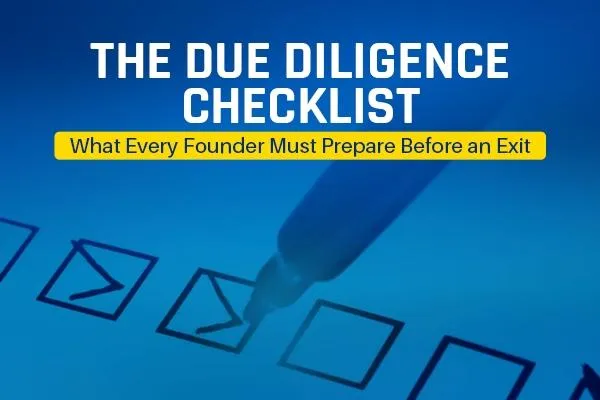
The Due Diligence Checklist: What Every Founder Must Prepare Before an Exit
"The best exits don’t happen by chance—they happen by design, with meticulous preparation and strategic foresight." – Jerome Myers
Introduction
Due diligence is one of the most critical phases of selling a business. A lack of preparation can lead to deal delays, valuation reductions, or even failed transactions. The more organized and transparent your documentation, the more attractive and seamless the process will be for buyers. Having a solid due diligence checklist ensures that you maximize valuation and prevent last-minute surprises.
Key Areas to Address in Due Diligence
Financial Documentation – Ensure accurate financial statements, tax records, and audited reports are up to date.
Legal & Compliance – Verify contracts, intellectual property rights, employment agreements, and regulatory compliance.
Operational Stability – Have clear documentation on business processes, supplier agreements, and customer retention data.
Team & Leadership – Ensure your organizational structure and key personnel are prepared for transition.
Market & Competitive Positioning – Demonstrate a strong market presence, growth potential, and competitive differentiation.
Common Pitfalls to Avoid
Failing to keep clean and updated financial records.
Overlooking contract obligations and legal risks.
Not documenting standard operating procedures.
Waiting too long to start due diligence preparation.
Final Thought
The strongest exits come from founders who think ahead. By addressing due diligence proactively, you not only increase the likelihood of a smooth sale but also position yourself for a premium valuation.
Your Next Step
Take the Exit Readiness Assessment to evaluate your business’s preparedness for due diligence and ensure a seamless exit.
